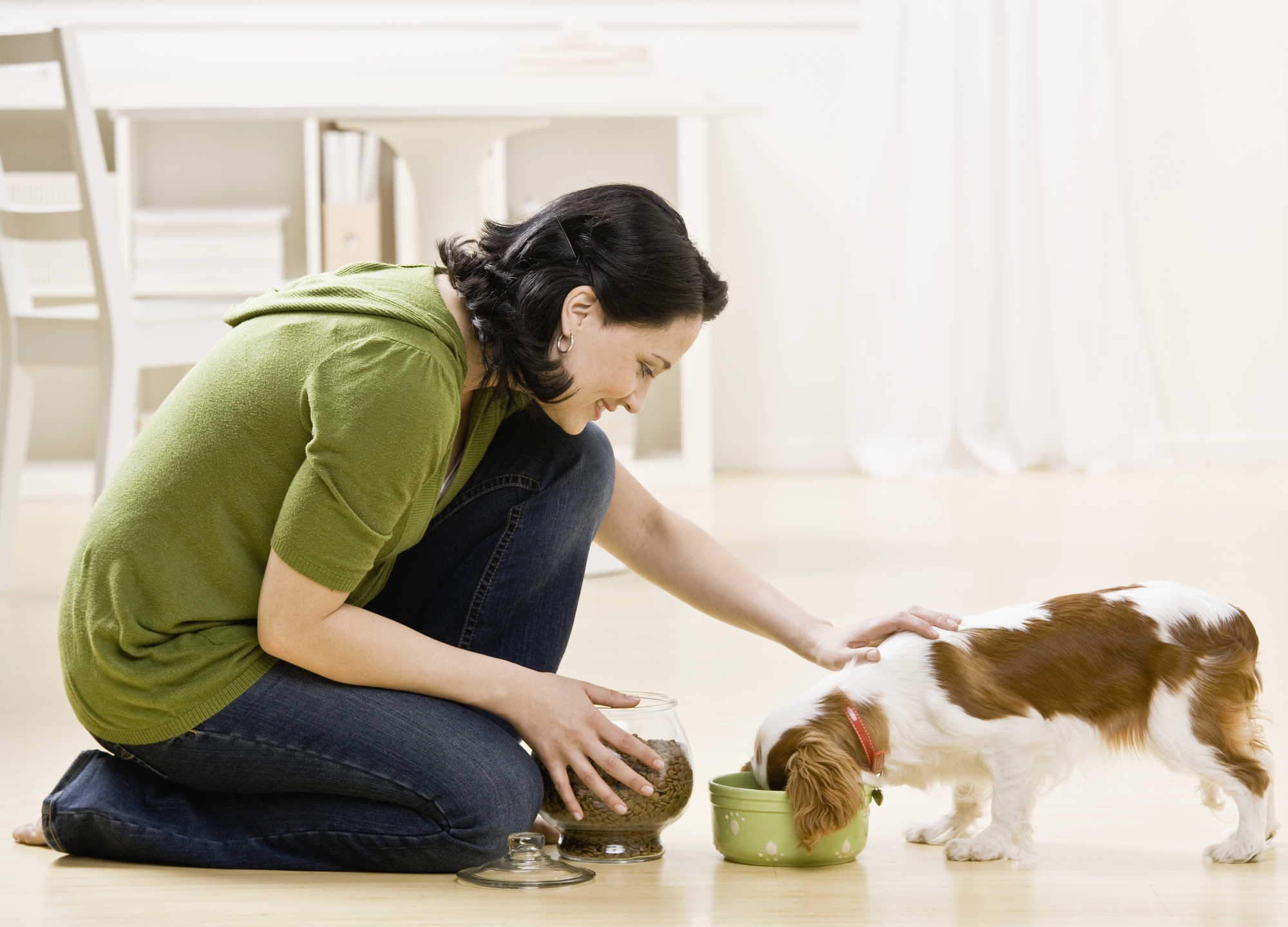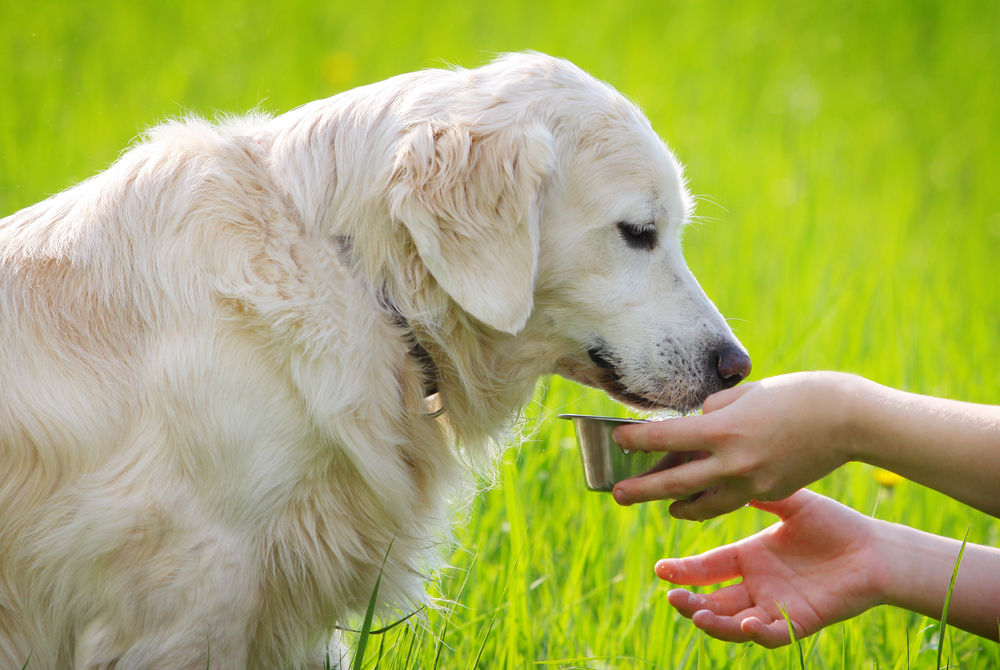
In many households, dogs are not only beloved pets but are often considered part of the family. As such, it’s not uncommon for dog owners to want to share their food with their four-legged companions.
Whether it’s a leftover bite of roast chicken or a few crumbs from a sandwich, the intention is usually harmless—after all, who could resist that cute, pleading puppy face? However, feeding human food to dogs is a practice that should be approached with caution, as it poses numerous risks to a dog’s health.
In this article, we will explore the key concerns regarding human food for dogs, including the dangers of certain foods, why some foods are safe in moderation, and how to make informed decisions about feeding your dog scraps or treats. We’ll also address some common FAQs related to the subject.
1. Why Can’t Dogs Eat Human Food?
Dogs and humans have different nutritional needs, digestive systems, and tolerances for certain substances. While some foods we enjoy are safe and even beneficial for dogs, many others can lead to serious health issues. Here’s why feeding dogs human food can be problematic:
- Toxicity: Some common human foods contain substances that are toxic to dogs, even in small amounts. Chocolate, grapes, raisins, onions, garlic, and alcohol are prime Ingesting these foods can cause immediate poisoning, long-term damage, or even be fatal.
- Obesity: Many human foods are high in calories, fats, and carbohydrates, which are not ideal for dogs. Regularly feeding your dog human food can lead to obesity, which in turn increases the risk of other health issues, such as diabetes, heart disease, and joint problems.
- Imbalanced Diet: Dogs have specific dietary requirements for protein, fats, vitamins, and minerals. Many human foods do not offer a balanced nutritional profile for dogs, leading to nutrient deficiencies or excesses that can harm your dog’s health.
- Digestive Issues: Some human foods are too rich or difficult for a dog’s digestive system to handle. For example, dairy products can lead to gastrointestinal upset, while fatty or spicy foods may cause diarrhea or vomiting.
2. Dangerous Human Foods for Dogs
While there are many human foods that can be safely shared with dogs in small quantities, there are several that should always be avoided due to their potential to cause harm. Some of the most dangerous include:
- Chocolate: Chocolate contains theobromine and caffeine, both of which are highly toxic to The darker the chocolate, the more toxic it is. Even a small amount can cause symptoms like vomiting, diarrhea, seizures, and even death.
- Grapes and Raisins: These fruits can cause acute kidney failure in dogs. The exact substance in grapes and raisins that causes this reaction is still unknown, but the danger is well-documented.
- Onions and Garlic: Onions, garlic, and other members of the allium family can cause oxidative damage to a dog’s red blood cells, leading to hemolytic anemia. Symptoms include lethargy, vomiting, and diarrhea.
- Xylitol: This artificial sweetener, found in sugar-free gum, candy, baked goods, and some peanut butter, can cause a rapid insulin release in dogs, leading to hypoglycemia (low blood sugar). Symptoms include weakness, confusion, and seizures.
- Alcohol: Even small amounts of alcohol can cause vomiting, diarrhea, difficulty breathing, and even coma in It can also cause a dangerous drop in blood sugar, body temperature, and blood pressure.
- Avocado: While avocado is healthy for humans, it contains a substance called persin, which can cause vomiting and diarrhea in dogs. Some dogs may be more sensitive to persin than others.
- Macadamia Nuts: These nuts are toxic to dogs, causing symptoms such as weakness, tremors, vomiting, and elevated body temperature.

3. Safe Human Foods for Dogs
Fortunately, not all human food is off-limits to dogs. There are many foods that can be shared with your pet safely, provided they are given in moderation and without added ingredients like spices, salt, or sugar. Here are some examples of safe human foods for dogs:
- Carrots: Carrots are low in calories and high in fiber and vitamins, making them a healthy treat for dogs. They’re good for their teeth and digestion.
- Apples: Apples (without seeds or cores) are a great source of fiber and vitamins A and They can be a refreshing and low-calorie treat.
- Peanut Butter: In moderation, plain, unsweetened peanut butter is a good source of protein and healthy fats for dogs. Just be sure it doesn’t contain xylitol.
- Chicken (Cooked, Skinless): Skinless, boneless chicken is a lean source of protein that most dogs love. It’s best served cooked, without seasoning or sauces.
- Pumpkin: Plain, cooked pumpkin is an excellent source of fiber and can help with digestive issues like constipation or diarrhea.
- Rice and Oatmeal: Cooked plain rice or oatmeal can be easy on a dog’s stomach and can be beneficial in cases of digestive upset.
- Green Beans: These are low in calories, high in fiber, and can be a healthy treat for They can be served fresh, frozen, or cooked.
- Eggs: Cooked eggs are a good source of protein and nutrients for Make sure they are fully cooked to avoid the risk of salmonella.
4. Why is Moderation Important?
Even when offering your dog safe human foods, moderation is crucial. Too much of even a healthy food can lead to digestive problems, weight gain, or imbalanced nutrition. For instance, too much peanut butter can result in a dog consuming excess calories, while too many carrots could cause gastrointestinal upset due to their high fiber content.
It’s also important to consider portion sizes when feeding human foods. While a few baby carrots or a spoonful of plain pumpkin can be a healthy treat, giving your dog large amounts of these foods regularly could displace essential nutrients that come from their specially formulated dog food.
5. How to Transition to a Human-Food-Enhanced Diet
If you’re interested in incorporating human food into your dog’s diet, it’s essential to do so carefully. Here are some steps to help you transition safely:
- Consult a Veterinarian: Before making any major changes to your dog’s diet, consult with your veterinarian. They can provide advice based on your dog’s age, size, breed, and health condions.
- Start Slow: Introduce one new food at a time and monitor how your dog This will help you identify any adverse reactions or allergies.
- Use Food as a Treat, Not a Meal Replacement: It’s best to use human food as a supplemental treat rather than a replacement for your dog’s regular balanced Your dog’s primary source of nutrition should come from high-quality dog food designed to meet their specific needs.
- Avoid Seasonings and Additives: When giving your dog human food, ensure it’s plain and free from seasonings, sauces, or oils. Many spices and seasonings that are safe for humans can be harmful to dogs.
FAQs about Feeding Human Food to Dogs
1. Can I feed my dog leftovers?
It depends on what the leftovers contain. If they include safe, plain foods like cooked meat, vegetables, or rice, they can be okay in small portions. However, if they contain seasonings, sauces, or ingredients like garlic, onions, or excessive salt, they should be avoided.
2. Is it safe to give my dog table scraps?
Giving your dog table scraps can be problematic, as they often contain harmful ingredients like salt, butter, or spices. It’s best to avoid feeding your dog table scraps, especially if you’re unsure what they contain.
3. Can I give my dog fruits like bananas or strawberries?
Yes, many fruits are safe for dogs in moderation. Bananas and strawberries, for example, are generally safe and can offer vitamins and fiber. However, too much fruit can cause gastrointestinal upset due to their natural sugars and fiber content.
4. What should I do if my dog accidentally eats something harmful?
If your dog ingests something potentially harmful, contact your veterinarian immediately. In the case of serious toxins like chocolate, grapes, or xylitol, prompt action can make a critical difference. Some poisons can cause immediate harm, so time is of the essence.
5. How can I tell if my dog has eaten something bad?
Signs that your dog may have eaten something harmful include vomiting, diarrhea, excessive drooling, lethargy, tremors, or loss of appetite. If you notice any of these symptoms after feeding your dog something unusual, contact your vet immediately.
Conclusion
Feeding your dog human food can be a rewarding way to bond with your pet, but it’s essential to be mindful of what you’re sharing. Many human foods can be dangerous to dogs, while others are safe in moderation. Understanding the risks, offering appropriate treats, and consulting with your veterinarian are the best ways to ensure your dog stays healthy and happy.
By following these guidelines, you can continue to show love for your dog through healthy treats and snacks while avoiding the pitfalls of harmful or inappropriate foods.
